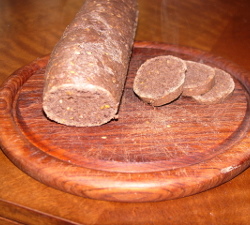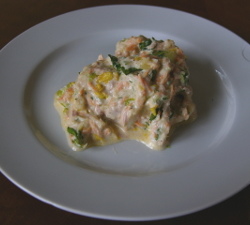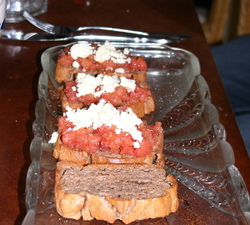"Mer waaß´es net"
This phrase from my native Upper Hessian dialect says it best. It means both "I don't know" and "Nobody knows".
What we can say with certainty is that the broad omission of carbohydrates causes no immediate symptoms of diet deficiency, as long as you eat an otherwise balanced diet and don't have any serious metabolic disorders. It's also certain that the weight loss associated with low-carb eating has positive health effects for overweight people. And the positive short-term effects of a low-carb diet on diabetes are very well documented. The University of Würzburg is currently researching how a ketogenic diet can help treat cancer.
The long-term effects of omitting carbs from the human diet are not yet known. We can guess, of course, and these guesses may even be correct. But figuring out long-term positive or negative effects on our health is not an exact science. There are plenty of "experts" (including doctors and nutritionists) who claim to know what is or isn't healthy in the long run, but these claims don't stand up to strict scientific criteria.
Here's an example to illustrate: if you wanted to find out which cars were most vulnerable to accidents, you would have to study thousands of accidents in detail. The accidents could have been caused by drunk driving, speeding, bad brakes, worn-out tires, or some other kind of technical failure. So you would only know the cause of the crash and the frequency of its occurrence. If a speeding drunk driver in a car with worn tires were involved in an accident, it would be difficult to know which of the potential causes was responsible. It's impossible to say without knowing the exact circumstances of the accident. If all you have is a list of factors in each accident, you could reach confusing or incorrect conclusions. You might find that cars with dirty seats are more likely to be involved in accidents. This is logical when you consider that old cars have dirtier seats than average, as well as mechanical defects. They're also more likely to have younger, less-experienced, and unfortunately more risk-prone drivers. Obviously, using this knowledge to conclude that you can avoid accidents by cleaning your car's seats would be ridiculous. Statisticians could discover that bad tires and defective headlights often occur together, but it wouldn't make sense to say that worn-out tires cause your headlights to break.
And even if you did learn something useful this way, its influence on accident statistics would be limited. The cause of most car accidents is sitting behind the wheel.
Unfortunately, health studies often work just like the car example above. Human health is determined by many diverse and interdependent factors. It's often uncertain whether something is a cause, an effect, or only a side effect. And psychological and social factors are definitely more decisive for our health than diet. A human being is not just a machine that has to be oiled well so that it won't break. A critically-thinking scientist should always consider this in his or her conclusions, but unfortunately such a critical distance is not always available in the field of public health. On the contrary - science is often heavily influenced through sponsorship from the pharmaceutical and food industries. Otherwise many scientists couldn't afford to publish their research. The only research to use more amateurish methods than nutritional studies are studies of "vices" such as smoking.
Personally, I no longer believe our health gurus when it comes to food, drink, or lifestyle. Medicine can be a serious science. The success of different types of therapies can be studied. Double-blind studies conducted according to the rules of the scientific method can provide meaningful data on the effects of medications. We can't say the same for nutritional science, where yesterday's "truths" so often have to be retracted later. To the question of how we should or shouldn't live to be healthy in the long run, there's only one convincing answer:
„Mer waaß´es net!“








